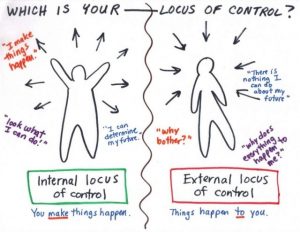
With Fuck Up Nights and other storytelling venues, people are sharing stories of business disaster like never before.
For most entrepreneurs, a $10,000 typo isn’t something to brag about. But when One Hope Wine co-founder Brandon Hall told an audience of 150 young startup enthusiasts about the expensive misprint—his first batch of labels read “chardannay”—the crowd laughed and applauded.
These days, failure is as much a thing to brag about as success. The wine story came at the first New York City version of Fuck-Up Nights, an event celebrating startup screw-ups, in early October. Adherents of the gatherings call themselves “fuckupreneurs,” and their ranks are growing.
Fuck-Up Nights began two years ago in Mexico City when a group of friends hatched the idea while drinking mescal. Now, the meetings are held every month in 50 cities on five continents, from Geneva to Melbourne to Quito. And the events’ organizers expect them to expand into 23 more cities—including Montreal, Nairobi and (last but not least) San Francisco—in the next few months.
“It’s not usually a question that people want coming out of their mouths when they talk about their company at cocktail networking events,” admitted Hall, the wine company co-founder, when asked about failure.
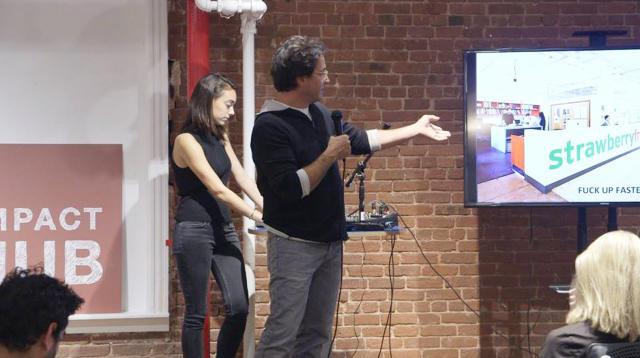
Yet most startups don’t end up becoming the next Facebook, and founders know that. One oft-cited study by Sikhar Gosh of the Harvard Business School put the startup failure rate at around 75%, but other estimates range from 30% to over 90%.
To stop sugarcoating success, several failure events have cropped up in recent years. For example, tech entrepreneurs have held three group startup funerals this year in New York City, complete with bagpipers, PowerPoint presentations and a DJ party. There is also FailCon, a conference celebrating business failure launched by a group in California in 2009. More than a dozen cities around the world, from Tokyo to Tehran to Dubai, now also host local FailCons.
Now, spinning failures into successes, using words like “experience,” “post-mortem analysis,” or “silver lining,” is even becoming mainstream. So mainstream, in fact, that the FailCon founder told the New York Times recently that she will shut it down and retool it next year as a smaller thing—invite-only failure.
The Fuck-Up Nights themselves almost have the feeling of an Alcoholics Anonymous gathering: attendees have accepted failure to varying degrees, from outright denial to enthusiastic embrace. With booze-infused sorbets and tacos, the organizers hoped to convince everyone to turn their darkest moments into bragging rights.
Audience members clad in business casual and brandishing their business cards were largely young—too young to have failed, or even started a business, yet. Some didn’t know the event focused on failure. In front of them at the podium, veteran entrepreneurs spoke for a few minutes about their failed ventures or their business mistakes. One New York City speaker, Scott Goodson of advertising agency Strawberry Frog, stumbled when asked by an audience member about how to overcome a failed business. He said he didn’t know because he didn’t identify any of his ventures as failures.
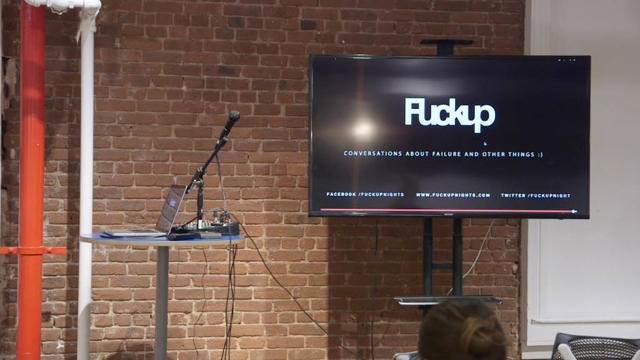
“Just the word ‘failure’ has a lot of baggage,” admitted Steffan Bankier, a co-organizer of the New York City Fuck-Up Nights and a co-founder of boxed wine company Public House Wine. “I wish there was another word we could use, because learning from a real fuck-up is actually very valuable, so it’s not really a failure.”
In fact, the events hope to do exactly that: turn mistakes into lessons for a younger generation.
The organizers of Fuck-Up Nights have gathered a rich, and growing, collection of failure stories. For example, one Mexican entrepreneur launched a sushi restaurant where diners could play video games, but knew about neither sushi nor video games and gave up the business. Others mismanaged money, or trusted unreliable employees, or expanded too soon, too fast.
The Fuck-Up Nights team has since collaborated with business schools in Mexico to identify the most common causes of startup failure. They are planning to expand their research to other countries soon.
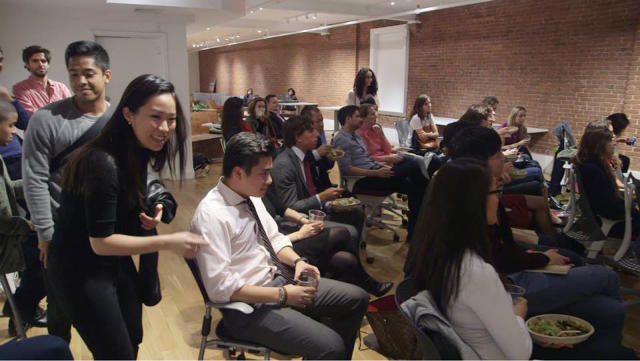
But sometimes, just sharing the failure stories during the events can have a profound effect. For example, Leticia Grasca, a co-founder of Fuck-Up Nights, fondly recalled the talk given by Luis Cabrera, the co-founder of the Mexican branch of startup incubator Unreasonable Institute. He was speaking publicly about his failures for the first time at a Fuck-Up Night when he suddenly paused.
“He said ‘I am sorry, I just realized that I was wrong. I am the fuck-up,’” recalled Grasca. “In the end, he said that it had been like an exorcism.”
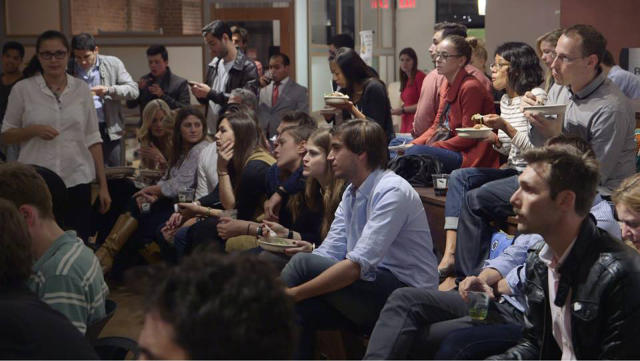
Seven years ago, Grasca herself was looking over a spreadsheet tracing the finances of her startup, which sold handicrafts by indigenous women.
“The numbers were all red, and I was thinking, I should probably ask my mother for money, I should probably sell my car,” she said. “And I had to confront reality, and see that we had already failed.”
She shut down the business and told the women she had become friends with it was all her fault.
Grasca told her own failure story with the confidence of someone who has shared her deepest mistakes publicly many times over. That’s part of the dynamic of events like Fuck Up Night: what were probably terrible moments are becoming something to signal experience and knowledge.
Grasca now signs her emails “Failure Sensei,” referencing the Japanese word for teacher, and works at Fuck-Up Nights full-time. She keeps busy fielding requests from entrepreneurs who want to set up Fuck-Up Nights in their own cities and fixing some of the events’ own screw-ups. She has encountered lost projectors and no-show speaker, she said, but no major failures yet. “But I’m sure it will come,” she added. “And when it comes, we will be open and transparent and share it with our community.”
![]()
(325)
